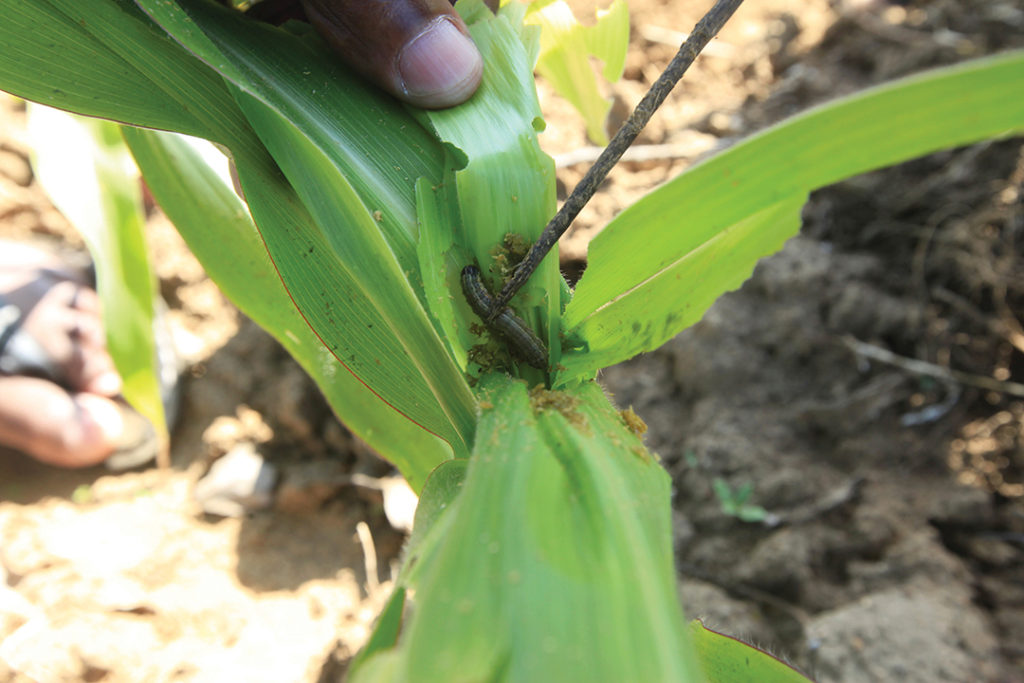VOICE OF AMERICA
A farmers’ group in South Sudan’s Imotong State says it has found a way to combat the dreaded fall armyworm, which has devastated crops across the continent.
Robert Lokang, leader of the Bidaya Farm Association, regularly sprays his crops with a concoction of neem tree leaves, ash, powdered soap and water. The all-natural formula is designed to kill the armyworms while not harming the plants.
It’s not a new invention. Lokang said he learned it decades ago as a child, when his father used the same concoction to ward off pests. He said that in 2016 the nongovernmental organization Care International showed local farmers how to use the mixture as a replacement for pesticides. He says his group decided to try it on the fall armyworm, and it worked.
Fall armyworms, which are native to the Americas, have spread across Africa since 2015, raising alarm among farmers and agriculture officials. The pests thrive in warm and humid climates, travel great distances quickly, and devour maize, cotton, sorghum and vegetable crops.
Lokang says he suffered severe financial losses last season after fall armyworms tore into his eggplants, tomatoes, onions and cabbages.
“They are eating the leaves and other insects,” he said. “They also destroy the roots, and the ones we transplant when the fruit is ready, they also get rotten.”
United Nations and government officials say regular insecticides do not work on the fall armyworm.
Awello Obale, an official at the state Agriculture Ministry, said Lokang’s method is cost-effective because there is no other immediate solution to the fall armyworm infestation.
“We encourage farmers … to use the cultural practices to control not only armyworm but other insects also,” Obale said.
Fortunately, neem trees are plentiful in the area. Obale says farmers should take advantage of Lokang’s simple method.

